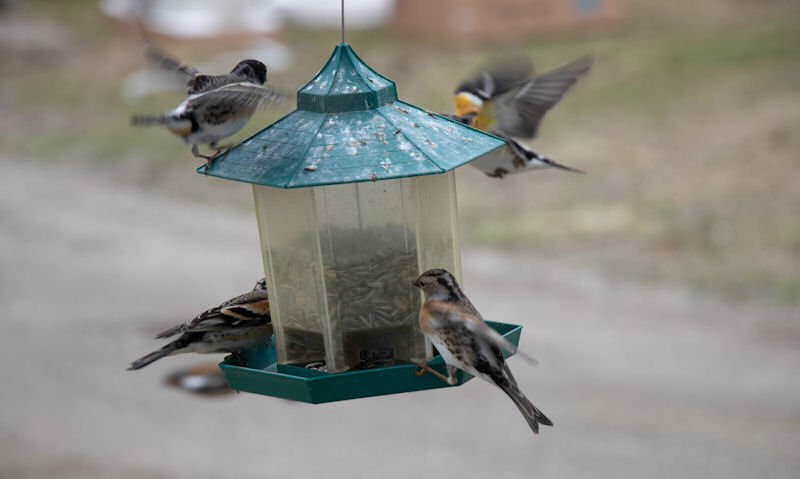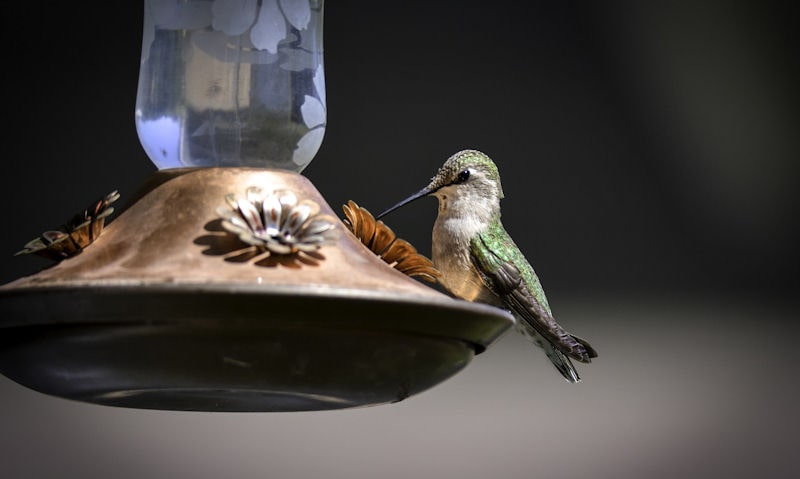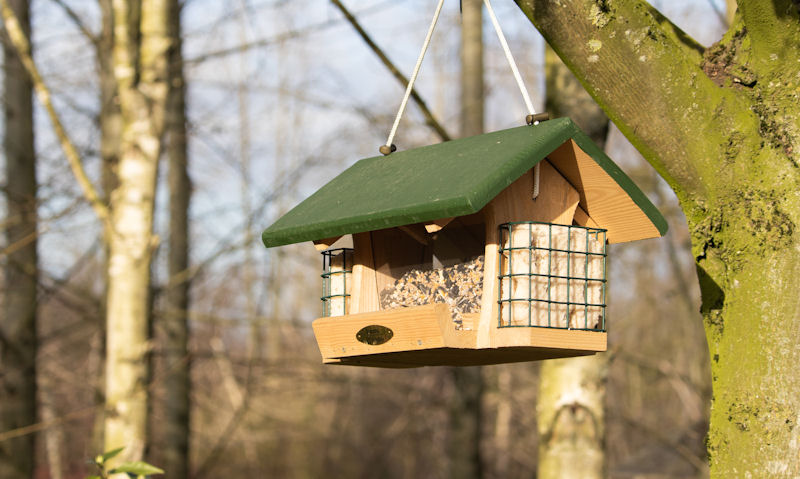Are bird feeders messy
Feeders are an essential way of feeding backyard birds on a daily basis, but in time your responsibilities will carry over to a reliable cleaning routine.
Bird feeders are messy for sure, with the mess getting worse the longer you leave it, with a regular clean up all over vital to feeding birds responsibly. Stubborn residue is avoidable by cleaning feeders at least once a week, but appearance matters too with bird droppings clean up before it gets too bad.
Depending on the type of bird feeders in use, most feeders would need a clean externally to maintain its brand new appearance, while a clean out internally is far more important.
Forget bird feeders making a mess on the ground, feeders can get a little worst for wear, and without a regular clean up, it can only get worse.
Unkempt feeders of the plastic variety will see visible stubborn bird food on the outside, while the clear plastic window on seed or Hummingbird feeders become a little misty.
To clean inside clear plastic tube feeders the window will remain crystal clear.
Similarly, metal mesh feeders that hold peanuts would need its metal parts scrubbed, while suet feeders get more greasy than messy, but a normal household dish soap agent is all that's needed.
Feeders made in wood look less messy in time, as the weathering effort is more complimentary - but that isn't to say it would need a treatment of preserve and a new splash of paint.
In time, you can see any bird feeder go past its best, so then its time to remove your cheap bird feeders with a set of brand new shiny ones.
Feeders CAN be messy
Oh yes, bird feeders are messy for sure but there's certainly ways you can maintain a clean bird feeder, if only maintaining it more often in any given week.
Prolonging a clean of your bird feeder setup will result in a more build up of hard to remove bird food, thus a regular clean up can see you clean this mess up internally with no issues at all.
Feeders primarily get messy due to bird feed inside the feeders, and little else.
Sure, bird poop can be an issue but more often than not, the poop seen sitting on top of feeders soon washes away in rain, or peels off in due course.
Bird feeders exterior are kept clean in a wet and cold climate, but regular cleaning and maintenance is needed to wipe off any build up of bird droppings.
Similarly, you'd need to clean up any brackets, bars or chains that the bird feeders hang off - as a result of these areas becoming more of a perching area for birds - the poop on metal bird feeding stations or brackets is a common sight.
Bird feeders are messy but all this can be avoided with a regular weekly clean.
Stubborn residue avoidable
How bird feeders become so unsanitary is due to lack of cleaning and maintenance on your part, so its vital you clean all bird feeders as regularly as you can.
Longer you leave cleaning out a bird feeders both internally and externally, any gunk and stubborn residue leftover is going to become a real problem to remove when a simple bowl of soapy water would of done it.
And bear in mind the most stubborn rotten bird food residue can be avoided if only cleaning it up on a regular basis.
I ask you to then clean your bird feeders at least once a week, and if at all possible do clean them up to twice weekly if in the summer months, the bird food is seen to expire for sooner - thus dangerous bacteria is always going to be present.
Cleaning bird feeders shouldn't be to difficult but anyone can understand how inconvenient it can be.
With that in mind, imagine more time spent scrubbing and scrapping feeders when rotten leftover food can be quickly wipe away if you only clean the feeders more often.
Don't allow bird feeders to sit in rotten bird food far past its expiry date; to clean a bird feeder once or twice a week, can see a quick wash with water and soap made possible, rather than using a vinegar or bleach solution to get rid of any stubborn grime.
Limited life expectancy
While bird feeders can be messy unless you clean them as regularly as possible, including swapping out rotten bird feed with fresh options, feeders are not designed to last forever.
In fact, all new bird feeders in a way do have a life expectancy on them, as that once clean, shiny surface soon becomes weathered, by losing its color or metal becomes tarnished - so its simply unavoidable and out of your control.
Feeders can last years before visible damage is seen, thus they don't look as appealing setup in your yard as they once were.
Bird feeders that are way past their best would in turn appear ugly, with no choice but to remove them.
Thankfully, bird feeders are not at all too expensive to buy, so this is the reason why standard, but highly popular no fuss seed, peanut and suet feeders cost very little to buy.
Manufacturer's believe you'd replace your current crop of feeders with brand new ones when they begin to look untidy by simply being located outdoors.
Truth is manufacturer's hope you replace feeders with their own range, but there's no harm in shopping elsewhere for bird feeders promoted as heavy duty, rust free - and that sort of wording on their packaging.
When your bird feeders appear to be past their best, be sure to replace them if they look a mess hanging up, but be sure to clean them regularly to prevent this happening so soon.
Feeder clean up solution
Whilst is near impossible to stop any kind of bird feeders, be it made in plastic or metal showing signs of wear - a gentle cleaning solutions must be used.
Harsh bleach solutions of part 1/9 bleach with water can remove stubborn food internally, along with hard bird droppings creating a mess externally.
Bleach can discolor a plastic bird feeder, but also creates a misty sheen on clear plastic tubes belonging to seed feeders.
With that, avoid bleach cleaning solutions to maintain your feeders, while resorting to a more gentle 50/50 white vinegar solution to kill off bacteria and any remnants of nasty germs.
What I've explained previously is to clean your bird feeders once or twice a week, to avoid the need of harsher solutions when hot soapy water is all that's needed.
Regardless, the weathering of a bird feeder as seen externally cannot be avoided.
In the meantime, concentrate your cleaning efforts of any mess seen on the feeders with a soft sponge or cloth, with harsh brushes avoided on plastic options.
Within the bird feeder the leftover, rotten or stubborn bird food must be cleaned out, as its here where the mess soon spreads.
Summarize
Unfortunately, bird feeders can get a little on the messy side, just as they can create a mess on the ground below them.
But for a bird feeder of any kind to get messy, this can lead to leftover bird food too stubborn to remove internally; thus bacteria and other germs will set in, then shortening the life expectancy of the feeders in use.
Feeders can be kept quite tidy if you commit to cleaning the feeders once a week, but twice weekly can avoid that stubbornness in hard to remove feed, inside and out of the feeder.
Bird feeders do have a life expectancy that can see a brand new feeder go past its best, after a few years of use of course.
Its an unavoidable process, as feeders left outdoors 24/7 will soon weather over the course of the coming months and years.
Wooden bird feeders can be treated and repainted, but plastic or metal feeders are allowed to wear, with a replacement of feeders needed sooner than later.
Clean your bird feeders as often as you can then to avoid a mess internally, but don't forget to keep things clean on the outside to remove bird droppings and anything else birds leave behind.


